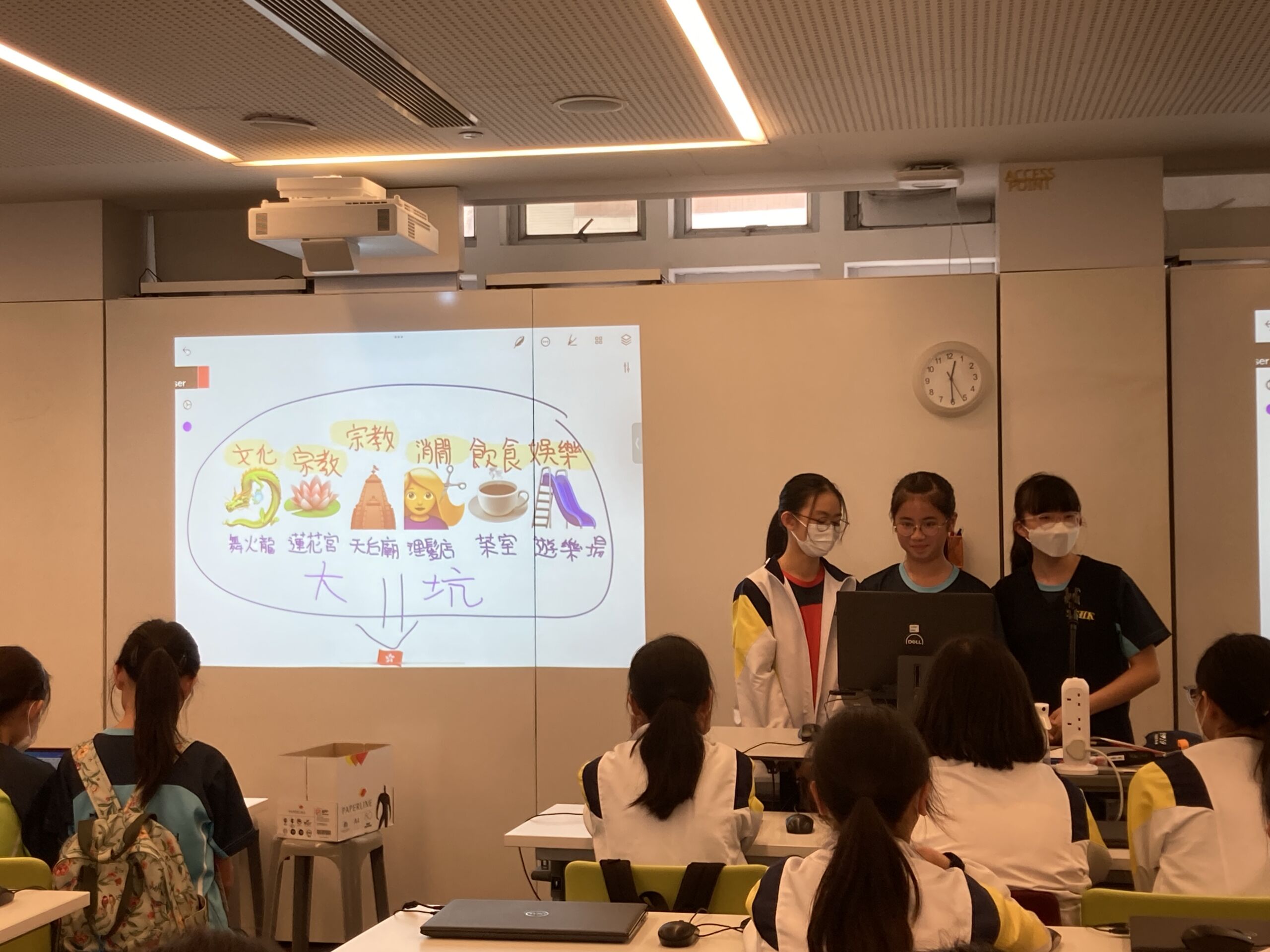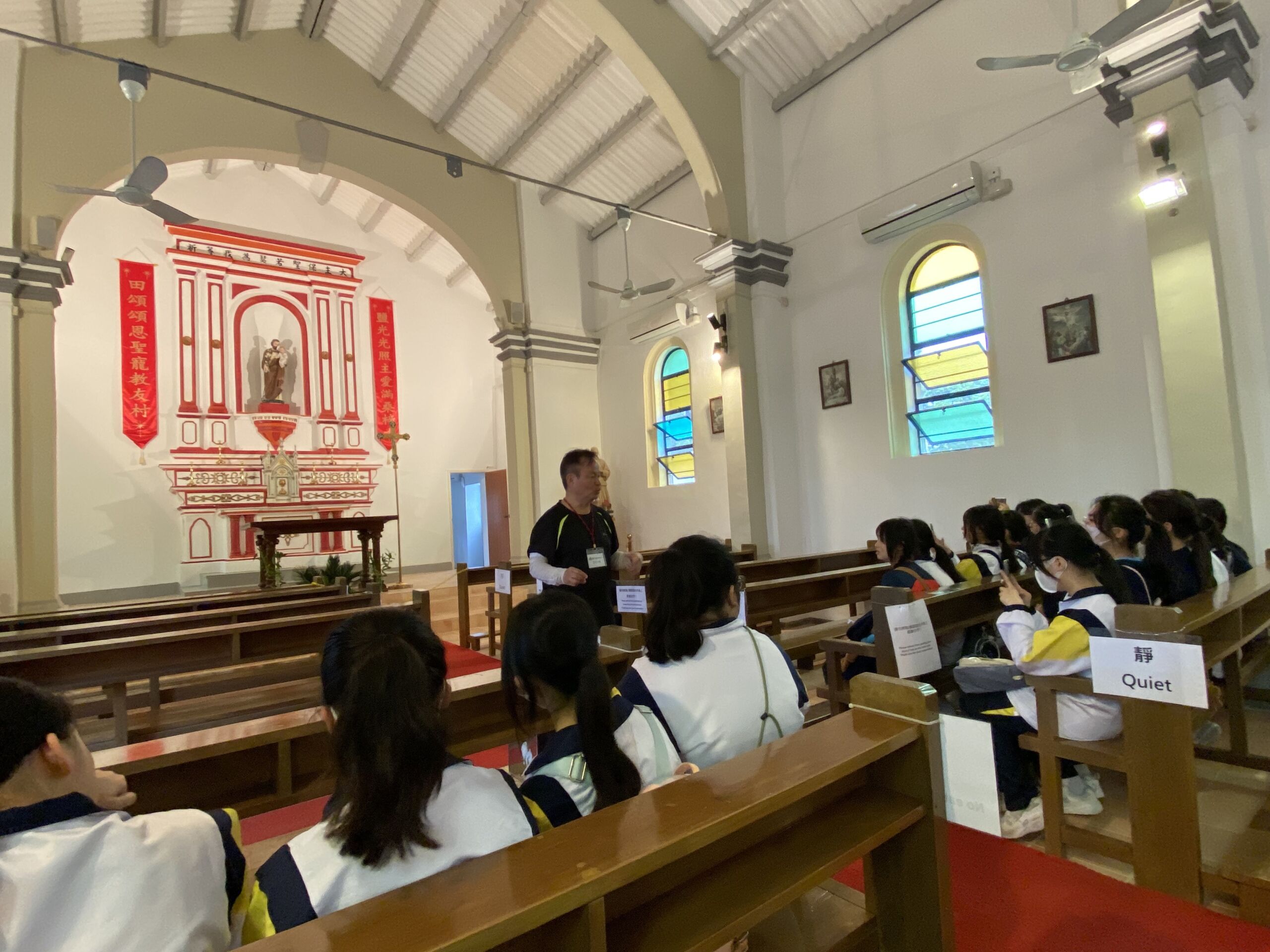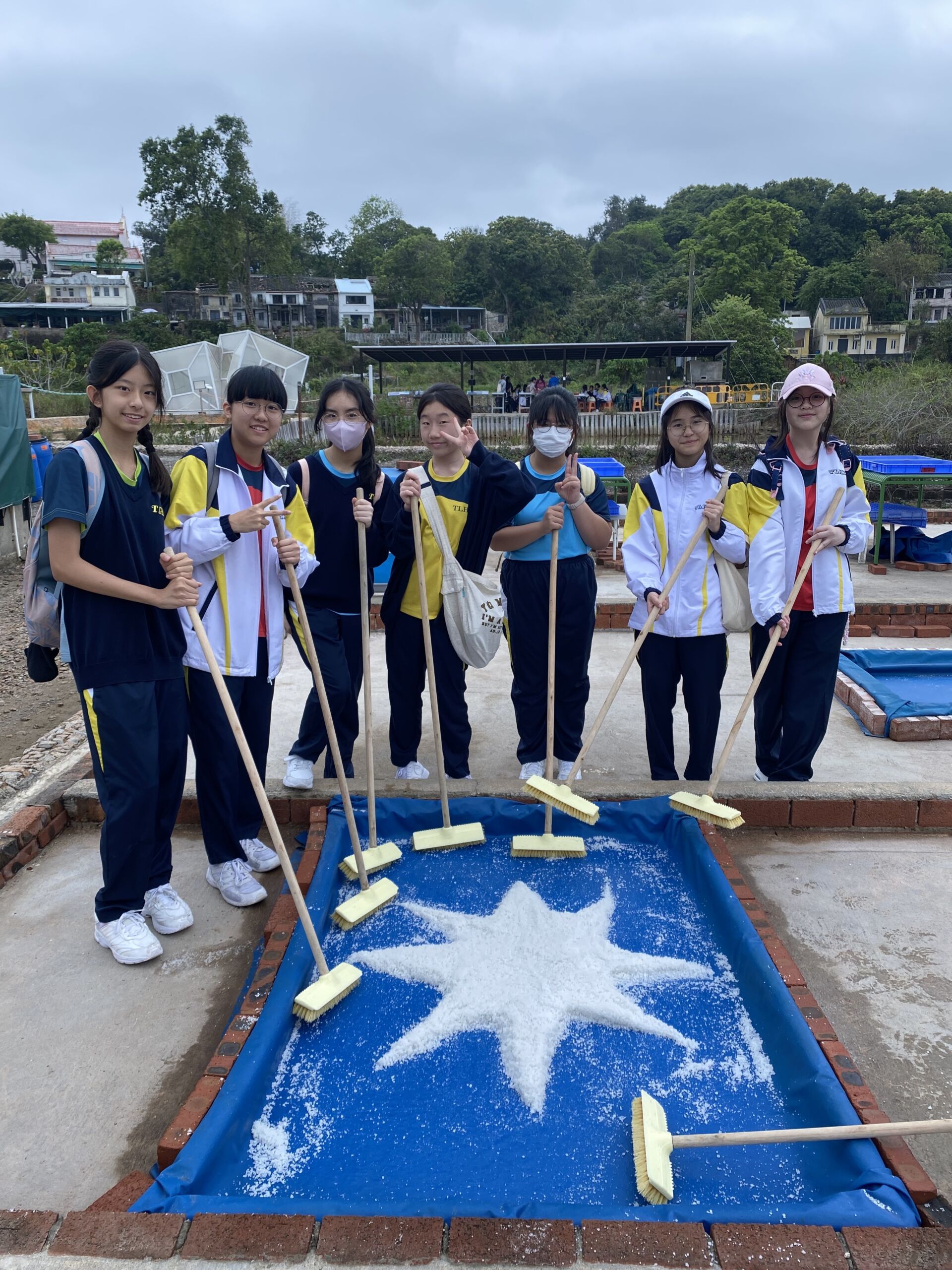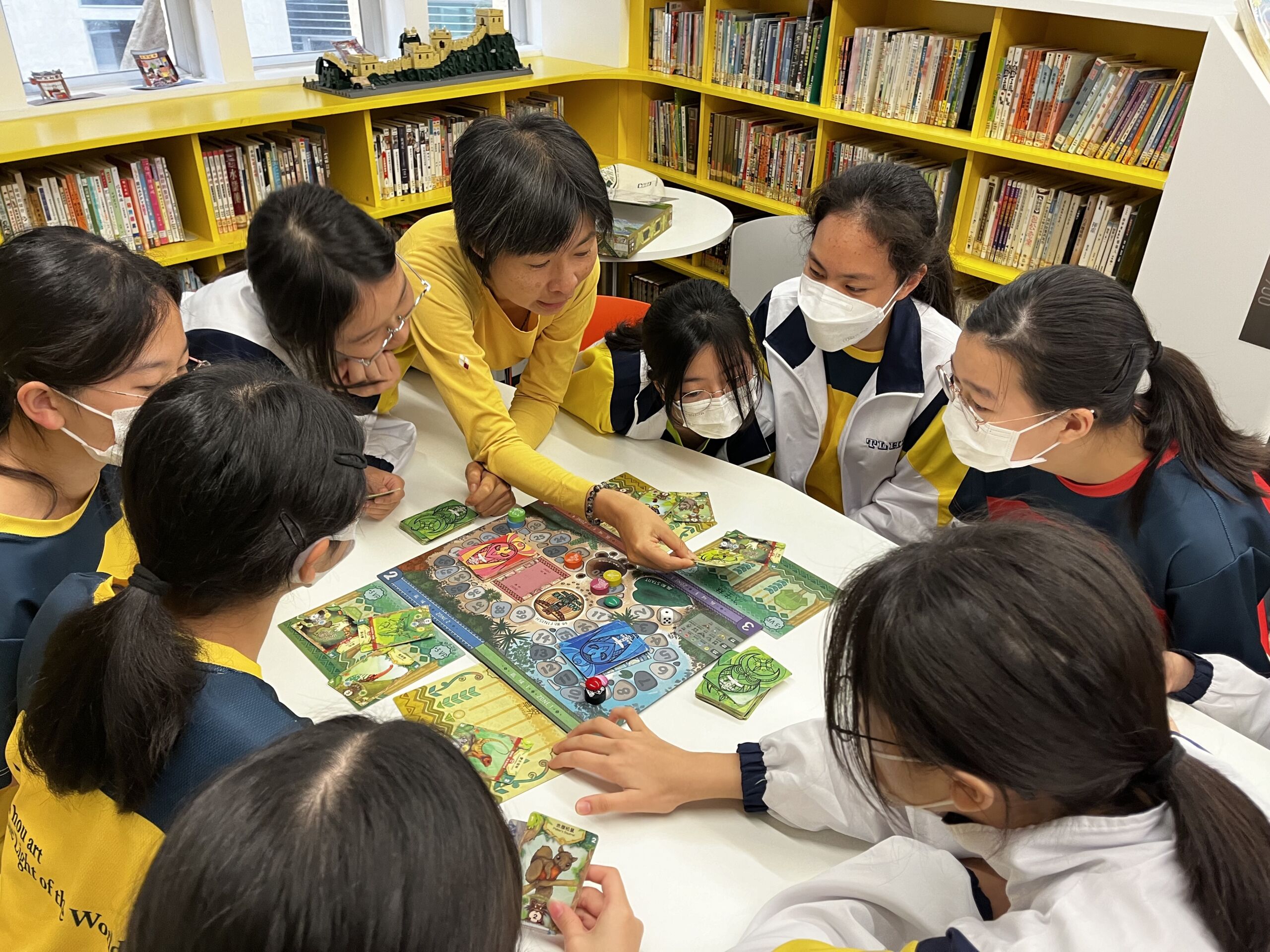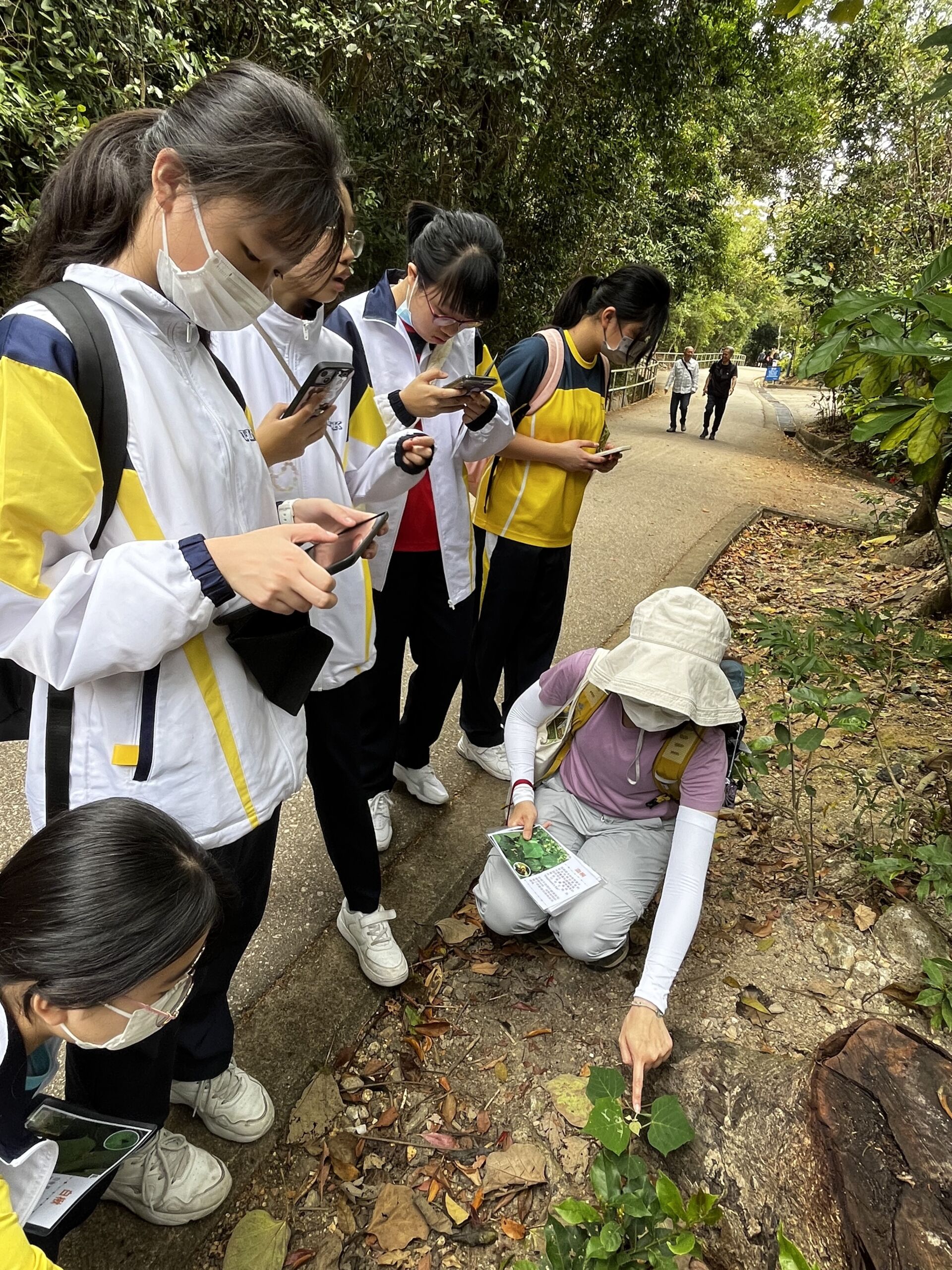For the 2024 Life-wide Learning Day, S1 students were divided into three groups and accompanied by teachers from Chinese History, History and Geography to visit Tai Hang, Yim Tin Tsai and Aberdeen respectively. Through the activity, students learned about the development of Hong Kong as a society.
Chinese History Group – Tai Hang community
The first stop was the Tai Hang Fire Dragon Path. Students learned about the origin and history of the fire dragon dance, which is a traditional practice of the Tai Hang community. The next stop was the Tin Hau Temple and Lin Fa Kung Temple, where students were introduced to the unique features of traditional Chinese architecture. They observed the intricate designs and decorations of the temples and learned about the cultural significance of these buildings. During the trip, students also had the opportunity to explore the streets of Tai Hang and examine the names of the streets. Through this exploration, students gained insights into the history of the Wan Chai district and the reclamation projects that have taken place over the years. Finally, students were given the chance to explore the Tai Hang community on their own. They visited a unique hair salon in an old tenement building (舊式唐樓) and the Tai Hang Fire Dragon Heritage Center. Overall, the field trip was a great success. Students gained a deeper understanding of the cultural and historical significance of Tai Hang while exploring the community and discovering its unique features.
History Group – Yim Tin Tsai鹽田梓
The visit to Yim Tin Tsai, fronted by historically significant salt pans and encircled by vast mangroves, provided S1 students with an invaluable opportunity to learn about the local history and Hakka culture that shaped the development of this village in Hong Kong. This field trip aimed to foster an appreciation for the local cultural heritage by exposing students to Yim Tin Tsai’s unique attractions, such as the Grade III listed St. Joseph’s Chapel and the Jade-Girdle Bridge, as well as traditions like salt-making. In addition, students had the chance to learn and experience the traditional process of producing sea salt firsthand, as Yim Tin Tsai boasts the only restored saltpan in Hong Kong. Guided tours and hands-on salt-making experiences allowed students to gain a deeper understanding of the village’s significance, which spans nearly three centuries.
Students thoroughly enjoyed the field trip and felt that they gained valuable insights into the local history of Yim Tin Tsai and its cultural heritage. Some expressed an increased appreciation for the preservation of cultural heritage and were intrigued by the upcoming Yim Tin Tsai Arts Festival, which promises participants a new and unique experience that integrates arts, religion, culture, and heritage.
Geography – 《Law of the Forest》Activity Day
The activity day commenced with an interactive talk led by instructors from the Outdoor Wildlife Learning Hong Kong (OWLHK) (香港戶外生態教育協會). During this session, the OWLHK instructors introduced fundamental concepts such as the food chain, forest ecology, and biodiversity in Hong Kong. Following the talk, students were divided into small groups and played rounds of the “Law of the Forest” board game. Through this board game experience, students acquired a wealth of fascinating information about the diverse woodland creatures found in Hong Kong. They also had the opportunity to experience firsthand the law of the forest – the survival of the fittest. This activity provided them with a deeper understanding of the intricate relationships between forest creatures and the impact of human activities on forest ecosystems.
The second half of the activity took place in the picturesque Aberdeen Country Park. Students thoroughly enjoyed taking a guided walk around the Aberdeen Reservoir, eagerly searching for the plants and animals they had learned about in the board game. The game-based tasks were thoughtfully designed to encourage students to explore using all their senses. This allowed them to closely observe the woodland ecosystem and forge a meaningful connection with nature.
Overall, the majority of students found the field trip to be both enjoyable and meaningful. They expressed their delight in being able to relax and engage in nature-based activities. In fact, some students even expressed a desire to contribute to future woodland conservation efforts, showcasing their newfound appreciation for the importance of preserving our natural environments.


